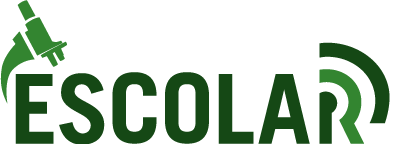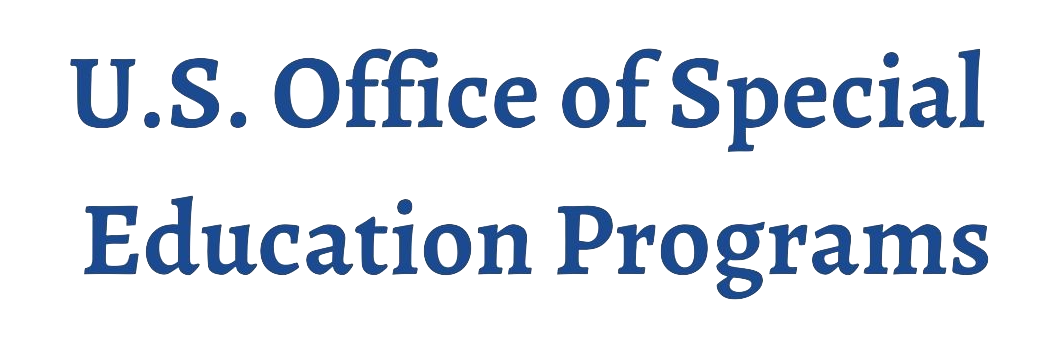The goal of our research is to provide effective science education for all students, with a particular focus on students with learning disabilities, who often score significantly lower on standardized tests than general education students (National Center for Education Statistics, 2015).
Current Research
The ESCOLAR team has completed a 3-year study testing the effectiveness of online units to help middle school students learn science in real classrooms. Results show that students learning from the online units significantly deepened their science knowledge compared to control students.
Year 1
In Year 1, 12 sixth-grade teachers in 7 middle schools used science units with 1,103 students; 16 sixth-grade teachers and 773 students in 6 middle schools were controls. All students who learned from the ESCOLAR units made significant gains in science knowledge (15 percentage point increase), compared to control students (p = .01). Specifically:
- General education students in the treatment group improved 20 percentage points (compared to 7 in the control group).
- Students with learning disabilities in the treatment group improved 16 percentage points (compared to 7 in the control group).
- English language learners in the treatment group improved 20 percentage points (compared to 7 in the control group).
Year 2
In Year 2, 14 seventh-grade teachers in 7 middle schools used science units with 1,049 students; 12 seventh-grade teachers and 883 students in 6 middle schools were controls. All students who learned from the ESCOLAR units made significant gains in science knowledge (15 percentage point increase), compared to control students (p = .02). Specifically:
-
General education students in the treatment group improved 15 percentage points (compared to 4 in the control group).
-
Students with learning disabilities in the treatment group improved 14 percentage points (compared to 5 in the control group).
-
English language learners in the treatment group improved 13 percentage points (compared to 3 in the control group).
Year 3
In Year 3, 10 eighth-grade teachers in 5 middle schools used science units with 799 students; 7 eighth-grade teachers and 563 students in 4 middle schools were controls. All students who learned from the ESCOLAR units made significant gains in science knowledge (20 percentage point increase), compared to control students (p< .001). Specifically:
- General education students in the treatment group improved 20 percentage points (compared to 7 in the control group).
- Students with learning disabilities in the treatment group improved 12 percentage points (compared to 7 in the control group).
- English language learners in the treatment group improved 7 percentage points (compared to losing 1 in the control group).
Past Research
ESCOLAR units evolved from a previously funded National Science Foundation study (Project COPELLS, 2009 – 2013), in which Collaborative Online Learning (COL) units were developed and piloted with middle school students. The ESCOLAR team upgraded these units to meet new Common Core State Standards and Next Generation Science Standards, and to better address the needs of students with learning disabilities by using eText supports.
Project-Based Learning (PBL)
Project-Based Learning (PBL) is a systematic teaching and learning approach that engages students in complex, real world tasks that result in a product or presentation to an audience, enabling students to acquire knowledge and life-enhancing skills (Chen & Yang, 2019). The two essential components of PBL are: (a) a question, to organize and drive learning activities, and (b) the products/artifacts, which present students’ solutions to the problem (Chen & Yang, 2019).
Accordingly, PBL has the following fundamental features: “inquiry, guided by the driving question, meaning that students ask their own questions, perform investigations, and develop answers; student voice and choice, meaning that students are allowed to make some decisions about the products to be constructed and how they work; revision and reflection, in which students have opportunities to use feedback to make their products better, and think about what and how they learn; and a public audience, to which students present their work” (Chen & Yang, 2019).
Middle school students with specific learning disabilities may do especially well with PBL when they engage with typically developing peers, as students with different ability levels can learn from each other’s experiences. Inquiry- and activity-based methods also improve learning science for middle school students with specific learning disabilities, particularly when technology is incorporated (Terrazas-Arellanes et al., 2018).
Our COL units incorporate components of PBL:
-
A driving question anchored in a real-world problem
-
Opportunities to make active investigations
-
Student collaboration in a shared learning community
-
The use of cognitive tools
Cognitive-Affective Theory of Learning with Media (CATLM)
The Cognitive-Affective Theory of Learning with Media (CATLM) (Moreno & Mayer, 2007) examines how to structure multimedia features to enhance learning.
CATLM includes five instructional principles for interactive multimodal learning environments:
Dialoguing: Learners ask questions and receive feedback
Controlling: Learners determine the pace and/or order of presentations
Searching: Learners engage in seeking information, selecting options, and finding new materials
Manipulating: Learners set parameters for simulation; zooming in/out and moving objects around the screen
Navigating: Learners move to different content areas by selecting from various available information sources
We believe these principles are tied with constructivist approaches and can be exploited during Project-Based Learning to help students learn.
In line with this theory, our COL units are designed to present auditory and visual information in ways that minimize working memory load and promote learning.
Students with learning disabilities, who often struggle when presented with too much information at once, may especially benefit from our theory-based COL units, which limit working memory load, engage learners, and motivate students to gain new knowledge. These students can create their own learning environment by:
- Receiving feedback when needed
- Controlling how fast they go through the material
- Viewing objects on the screen in ways that make it easy for them to see and understand
Supported eText
Supported eText (Anderson-Inman & Horney, 1997, 1998) makes the electronic text more accessible. Our COL units have embedded eText supports, including text-to-speech, vocabulary words linked to online definitions, and digital note-taking—all of which have been shown to help students learn.
Students with learning disabilities may find eText supports particularly useful. Researchers have documented the positive effects of these supports on students with learning disabilities.
-
Text-to-speech increases literacy outcomes for students with learning disabilities (Izzo, Yurick, & McArrell, 2009; Douglas, Ayres, Langone, Bell, & Meade, 2009; Horney et al., 2009).
-
Phonological awareness improves in students using an ebook with supports for reading, including a dictionary, compared to students using a book without supports (Shamir, Korat, & Shlafer, 2011).
-
Taking notes increases student comprehension of science text (Horney et al., 2009).
By incorporating these supports within each COL unit, Project ESCOLAR ensures that all students have the tools they need to learn science.
Publications
The following publications focus on research by project staff related to the Collaborative Online Learning units.
Terrazas-Arellanes, F., Strycker, L. A., Walden, E., & Knox, C. (2020). Development of the ESCOLAR middle school online science curriculum:
Lessons learned from a design-based research project In L. Tomey, & D. Carbonara (Eds.), Handbook of research
on diverse teaching strategies for the technology-rich classroom (pp. 186-224). Hershey, PA: IGI Global.
Terrazas-Arellanes, F. E., Gallard M., A. J., Strycker, L. A., & Walden, E. D. (2018). Impact of interactive online units on learning science among students with learning disabilities and English learners. International Journal of Science Education, 40(5), 498-518.
Terrazas-Arellanes, F., Strycker, L. A., Walden, E., & Gallard Martinez, A. J. (2017). Teaching with technology: Applications of collaborative online learning units to improve 21st century skills for all. Journal of Computers in Mathematics and Science Teaching, 36(4), 375-386.
Terrazas-Arellanes, F. E., Knox, C., Strycker, L. A., & Walden, E. (2017). Online learning tools for middle school science: Lessons learned from a design-based research project. International Journal of Information Communication and Technology Education, 13(1), 27-40.
Terrazas-Arellanes, F., Knox, C., & Walden, E. (2015). Pilot study on the feasibility and indicator effects of collaborative online projects on science learning for English learners. International Journal of Information and Communication Technology Education, 41(11), 31-50.
Terrazas-Arellanes, F. E. (2015). PBL science empowered by discussion forums. Edutopia. Retrieved from: http://www.edutopia.org/blog/learning-science-pbl- discussion-forums-fatima- terrazas-arellanes.
Terrazas-Arellanes, F. E., Knox, C., Rivas, C., & Walden, E. (2014). English language learners’ online science learning: A case study. In J. E. Aitken (Ed.), Cases on communication technology for second language acquisition and cultural learning (pp. 322-355). Hershey, PA: IGI Global. Walden, E.,
Terrazas-Arellanes, F., & Knox, C. (2014). Connect English learners to science with online projects. International Society for Technology in Education. Retrieved from https://www.iste.org/explore/articledetail?articleid=26.
Terrazas-Arellanes, F. E., Knox, C., & Rivas, C. (2013). Collaborative online projects for English language learners in science. Cultural Studies of Science Education, 8(4), 953-971.



